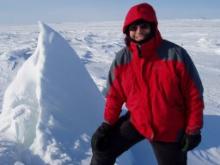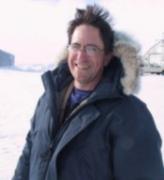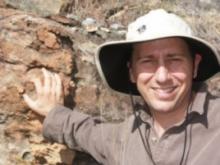2005 Science in Society Journalism Award winners
Presented October 29, 2006, at the NASW/CASW annual reception and banquet in Baltimore
Book
Robin Marantz Henig
Pandora's Baby: How the First Test-Tube Babies Sparked the Reproductive Revolution
Houghton Mifflin
This history of in vitro fertilization (IVF) draws parallels between the controversy over IVF in the 1970s and the current controversies over human cloning and stem-cell research. The judges cited Henig's, "Very absorbing and well-written account of progress in a scientific field that has direct impacts on human life."
Broadcast
Craig Duff and Andrew C. Revkin
Arctic Rush
A collaboration of The New York Times, the Discovery Times Channel and the Canadian Broadcasting Corporation.
The documentary examines how the melting of the Arctic is affecting travel, business opportunities, and international diplomacy. The judges commended the peace's solid on-site reporting, and its very thorough analysis of multiple sources of information. The judges also awarded an honorable mention to Daniel Grossman for "Preserving the Magic of Madagascar," Living on Earth and Radio Netherlands.
Magazine
Laurie Garrett
Foreign Affairs, July/August 2005
An analysis of the danger of an avian influenza pandemic, drawing on the lessons of the devastating 1918 flu epidemic and many other sources. The judges described the article as "An excellent primer for an influential audience."
Newspaper
Jim Erickson
Rocky Mountain News, December 13, 2005
A vivid account of the affect of climate change on the Colorado Rockies. The judges praised Erickson's nuanced approach to scientific uncertainty, and how global environmental change is likely to have impact on everything from the ski industry to the ecosystem of the Rocky Mountains. The judges awarded an honorable mention to Anthony R. Wood Jr. of the Philadelphia Inquirer for "A Mighty Stream," an account of how the Gulf Stream is being remade.
Web
Daniel Grossman
Fantastic Forests: The Balance Between Nature and People of Madagascar
The island of Madagascar has been isolated for 90 million years, and 80% to 90% of its species are found nowhere else. Within the next several years, Madagascar may be the place where a struggle to preserve the Earth's diversity of life will be won or lost. The judges described Fantastic Forests as "enchanting and original," and "a remarkable example of how effectively the Web can and should be used in conveying information and interpretation."
2005 Science in Society Journalism Awards committee
AWARD CHAIRS
- Robert Finn, International Medical News Group
- Jon Franklin, University of Maryland, College Park
INITIAL SCREENING COMMITTEE
- Robert Finn, International Medical News Group
- Jon Franklin, University of Maryland, College Park
- Carol Ezzell Webb, freelance and contributing editor, Scientific American
BOOK COMMITTEE
- Deborah Blum, University of Wisconsin, Madison
- Victor K. McElheny, freelance
- Joel Shurkin, freelance
BROADCAST COMMITTEE
- Blaine Baggett, Jet Propulsion Laboratory
- Ira Flatow, Science Friday
- Ray Villard, Space Telescope Science Institute
NEWSPAPER COMMITTEE
- Lew Cope, formerly of the Minneapolis Star Tribune
- Jon Franklin, University of Maryland, College Park
- Charles Petit, freelance.
MAGAZINE COMMITTEE
- Toni Feder, Physics Today
- Sally Maran, Smithsonian Magazine
- Ben Patrusky, Council for the Advancement of Science Writing
WEB COMMITTEE
- David Ansley, British Medical Journal
- Dennis Meredith, freelance
- Mary K. Miller, Exploratorium
FINAL JUDGING COMMITTEE
- KC Cole, University of Southern California
- David Perlman, San Francisco Chronicle
- Edward O. Wilson, Harvard University.






